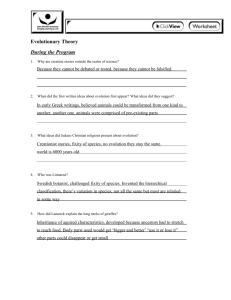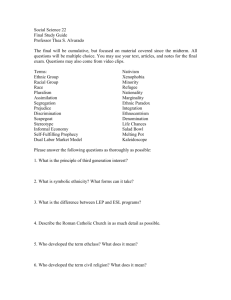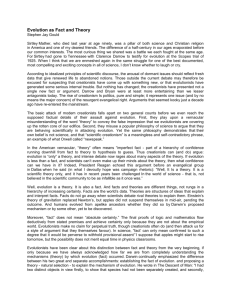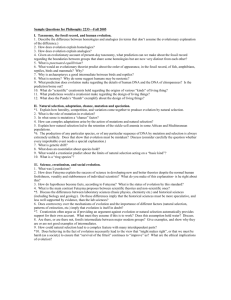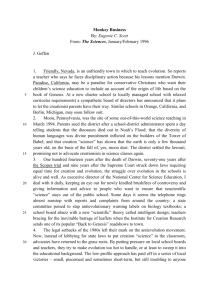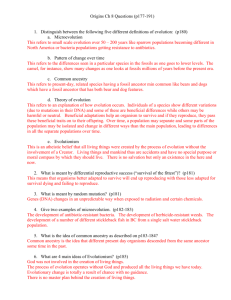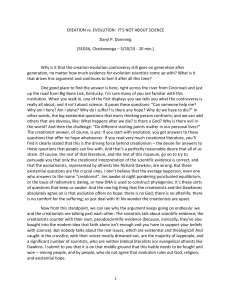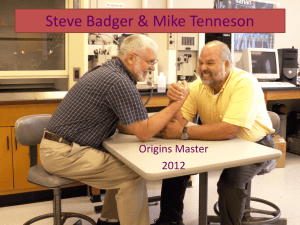Fundmentalism - Oregon State University
advertisement
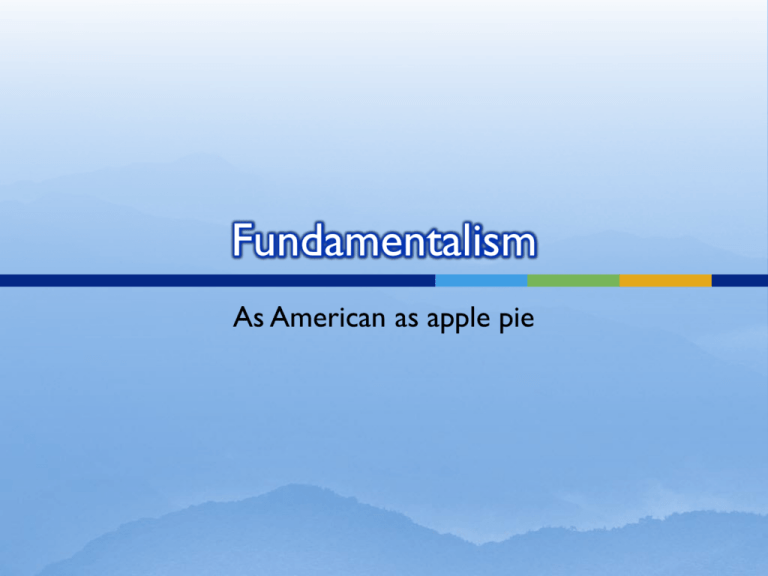
Fundamentalism As American as apple pie Where does it come from? A set of 12 tracts published from 1910 – 1915 under the editorship of A. C. Dixon called “The Fundamentals.” Fundamentalist theological beliefs: Naïve literalism Biblical inerrancy 19th century millenarianism Dispensational Millennialism There are seven ages of human history – “dispensations.” We live in the sixth age – the age of grace. Soon this will end and we will enter a final period of tribulation – the millennium. The Rapture The faithful would suddenly disappear at the start of the millennium. It was important to calculated the date accurately from evidence in the Bible. For this reason it was necessary to read the Bible literally. Sources of opposition to evolution After WW I it seemed something had gone terribly wrong. Social exclusion – the loss of the “old order.” Shift from an agrarian society to an urbanized, industrialized society. Less educated people were not able to follow the “higher criticism.” More trouble High school textbooks were being written by NE elite intellectuals. The remedy – ban the teaching of fundamentalism! The Scopes “Monkey Trial” In 1925 Tennessee passed the Butler Act forbidding the teaching of evolution in public high school. The ACLU was looking for a test case. John Scopes volunteered to be the plaintiff. Dayton was chosen for the trial. All Hell broke loose. Inherit the Wind Clarence Darrow, a famous (or infamous) trial lawyer was the defense attorney. William Jennings Bryan was the attorney for the prosecution. There was so much publicity that the courtroom threatened to collapse. Guilty! Scopes was found guilty and fined $100. The conviction was later overturned on a technicality. The Butler laws stayed on the books until 1965 when the Supreme Court declared them unconstitutional. The “Equal Time” Strategy A new strategy – equal time should be given for classroom instruction in evolution and “creation science.” What’s that? The creationist taxonomy General creationists: affirm only in a nonspecific way that God is the ultimate creator. Special creationists: assign Him one or more “special” roles in creation. Special creationists Progressive creationists: interpret the six days of Genesis allegorically. Some view God’s actions as single or very few. Others a large, perhaps infinite number of acts. Strict creationists One group adheres to the gap theory: a long epoch between the initial creation and the six days. Young earth creationists reject geological time. Creation Science Represents strict creationists, biblical literalists, generally of the young earth variety. In 1987 the Supreme Court recognized creation science as a religious doctrine not a science. Most major Christian denominations lined up with the Supreme Court on this issue. “Intelligent design” is the latest creationist strategy.
